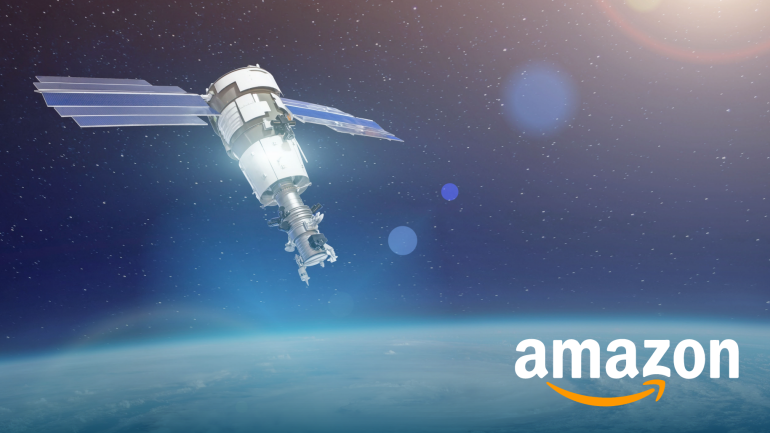Amazon, the multinational technology company, has received the approval from America‘s Federal Communications Commission (FCC) to deploy 3,236 internet satellites into low Earth orbit (LEO) and to provide the US with satellite-based broadband services.
The project, named Kuiper, was first announced last spring with the intent to build a LEO satellite constellation that would have the potential to provide cost-effective broadband services to unserved and underserved communities around the world. A project of this magnitude requires a great amount of resources, therefore Amazon will invest more than $10 billion in the project. This investment will not only provide broadband services, but will also create workplaces and infrastructure around the United States.
Dave Limp, senior VP at Amazon, commented: “There are still too many places where broadband access is unreliable or where it doesn’t exist at all. Kuiper will change that. Our $10 billion investment will create jobs and infrastructure around the United States that will help us close this gap. We appreciate the FCC’s unanimous, bipartisan support on this issue, and I want to thank Chairman Pai and the rest of the Commission for taking this important first step with us. We’re off to the races.”
Even though the launch date has not yet been set, Amazon plans to deploy 3,236 satellites in five phases. The constellation is said to orbit between 590 and 630 kilometers above the surface of the Earth, and according to the FCC, will use 17.7-18.6 GHz and 18.8-20.2 GHz for space-to-Earth, and 27.5-30.0 GHz for Earth-to-space spectrum bands.
Project Kuiper will provide high-speed, low-delay broadband services in areas where traditional fiber-optic or wireless networks are unavailable. The goal of the project is to reach customers in any and every part of the world, to serve individual households, schools, hospitals, businesses and other organizations operating in places where there is no reliable broadband connection. The Kuiper project will be designed and tested at a completely new research and development complex in Redmond, Washington.







